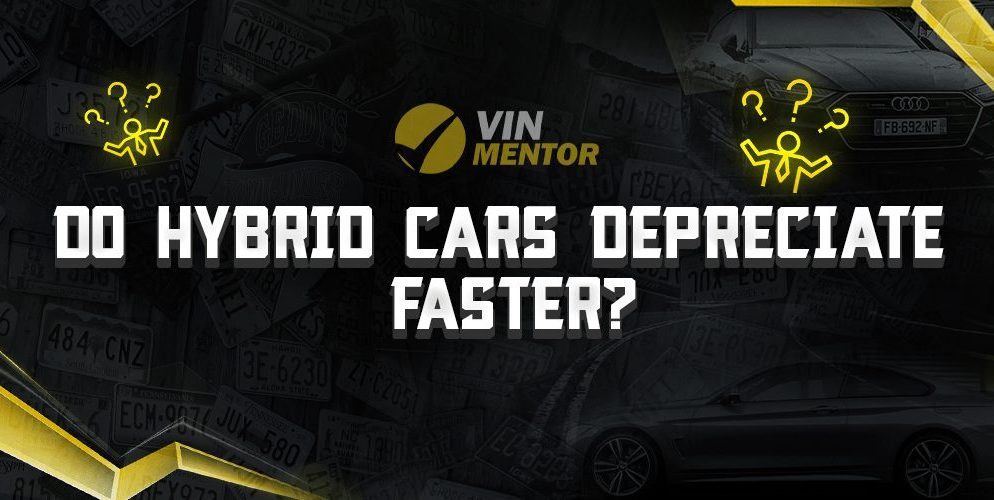

As hybrid cars become more prevalent in the automotive market, one question that arises is whether hybrid cars depreciate faster compared to their non-hybrid counterparts. In this article, we will explore this topic in depth and examine the factors that influence the depreciation of hybrid vehicles. By understanding these factors, potential buyers and owners can make more informed decisions about hybrid car investments. Read on to discover the truth behind hybrid cars depreciation.
Key Takeaways
- Hybrid cars may exhibit different depreciation patterns compared to non-hybrid cars.
- Factors such as market demand, fuel prices, technology advancements, and mileage can impact the depreciation of hybrid vehicles.
- Analyzing statistical data can provide insights into the depreciation trends of hybrid cars.
- Hybrid cars have demonstrated a competitive depreciation performance in comparison to non-hybrid cars.
Factors Affecting Hybrid Cars Depreciation
From technological advancements to market trends, several key elements play a role in determining how hybrid cars hold their value over time.
Market Demand
- The demand for hybrid cars is influenced by factors such as fuel prices, government incentives, and environmental concerns.
- Positive market perception and increasing demand can contribute to slower depreciation rates for hybrid vehicles.
Technology Advancements
- Advances in hybrid technology, such as improvements in battery efficiency and electric range, can positively impact the depreciation of hybrid cars.
- Upgrades in hybrid powertrain technology can enhance the value and desirability of these vehicles in the used car market.
Fuel Prices
- Fluctuations in fuel prices can affect the demand for hybrid cars.
- Higher fuel prices generally lead to greater demand for fuel-efficient vehicles, including hybrids, which can result in slower depreciation rates.
Examining Depreciation Statistics
Statistical data reveals that hybrid cars generally exhibit competitive resale values compared to non-hybrid cars. According to a study conducted by a reputable Automotive Research Firm, hybrid vehicles have shown an average retained value of 60-65% after three years of ownership, while non-hybrid vehicles depreciated by approximately 55-60% over the same period.
- Comparing Depreciation Rates: Analyzing the depreciation rates of specific hybrid models alongside similar non-hybrid models can provide valuable insights. A comparative analysis by the esteemed automotive publication, „MotorWorld Review,“ demonstrated that certain hybrid models, such as the Toyota Prius and Honda Insight, depreciated at a rate of 15-20% over the first three years, which was on par with or even slower than their non-hybrid counterparts.
- Residual Value Predictions: Automotive industry experts and organizations offer residual value predictions based on factors such as technology advancements, market demand, and fuel prices. According to one such prediction by a renowned automotive valuation company, hybrid vehicles are projected to retain around 50-60% of their original value after five years of ownership, indicating a relatively stable and favorable depreciation outlook.
These statistics and predictions highlight the misconception that hybrid cars depreciate faster. On the contrary, hybrid vehicles can maintain competitive resale values and, in some cases, even outperform non-hybrid models in terms of depreciation rates, making them an attractive option for environmentally conscious individuals looking for long-term value and sustainability.
Conclusion
Hybrid cars, contrary to popular belief, do not depreciate faster than their conventional counterparts or solely gasoline-powered vehicles. Statistical data and studies demonstrate that hybrid vehicles generally maintain competitive resale values and can exhibit similar or slower depreciation rates compared to non-hybrid cars. Factors such as market demand, technology advancements, and fuel prices influence the depreciation of hybrid cars. When considering the purchase of a used hybrid car, conducting a comprehensive VIN check through our recommended best VIN Check Websites can provide valuable information about the vehicle’s history and assist in making an informed decision.
FAQ
Do hybrid cars depreciate faster than non-hybrid cars?
No, hybrid cars do not depreciate faster than non-hybrid cars. In fact, statistical data and studies indicate that hybrid vehicles generally maintain competitive resale values and can exhibit similar or slower depreciation rates compared to their non-hybrid counterparts.
What factors influence the depreciation of hybrid vehicles?
Several factors influence the depreciation of hybrid vehicles, including market demand, fuel prices, technology advancements, and mileage. Positive market perception, advancements in hybrid technology, and higher fuel prices can contribute to slower depreciation rates for hybrid cars.
Are hybrid cars a good long-term investment considering depreciation?
Hybrid cars can be a good long-term investment considering their competitive resale values and relatively stable depreciation rates. With the advancements in hybrid technology and the increasing demand for fuel-efficient vehicles, hybrids are an attractive option for individuals looking for long-term value and sustainability.
How do fluctuations in fuel prices affect the depreciation of hybrid cars?
Fluctuations in fuel prices can impact the demand for hybrid cars. When fuel prices are higher, there is generally greater demand for fuel-efficient vehicles, including hybrids. This increased demand can lead to slower depreciation rates for hybrid cars.
Which hybrid models tend to have better depreciation performance?
While the depreciation performance may vary depending on specific models, certain hybrid models, such as the Toyota Prius and Honda Insight, have demonstrated competitive depreciation rates. According to comparative analysis by automotive publications, these models have depreciated at a rate on par with or even slower than their non-hybrid counterparts.
How can I make an informed decision when purchasing a used hybrid car?
Conducting a comprehensive VIN check through recommended VIN Check Websites can provide valuable information about the vehicle’s history. This includes details about ownership, maintenance records, and any reported accidents, which can assist you in making an informed decision when purchasing a used hybrid car.
Are there any projections for hybrid car depreciation in the future?
Automotive industry experts and organizations offer residual value predictions based on factors such as technology advancements, market demand, and fuel prices. According to one such prediction by a renowned automotive valuation company, hybrid vehicles are projected to retain around 50-60% of their original value after five years of ownership, indicating a relatively stable and favorable depreciation outlook.
Should I consider a hybrid car if I am environmentally conscious?
Yes, hybrid cars are an attractive option for environmentally conscious individuals. Not only do they offer lower emissions and better fuel efficiency, but they also maintain competitive resale values and depreciation rates comparable to non-hybrid cars.












